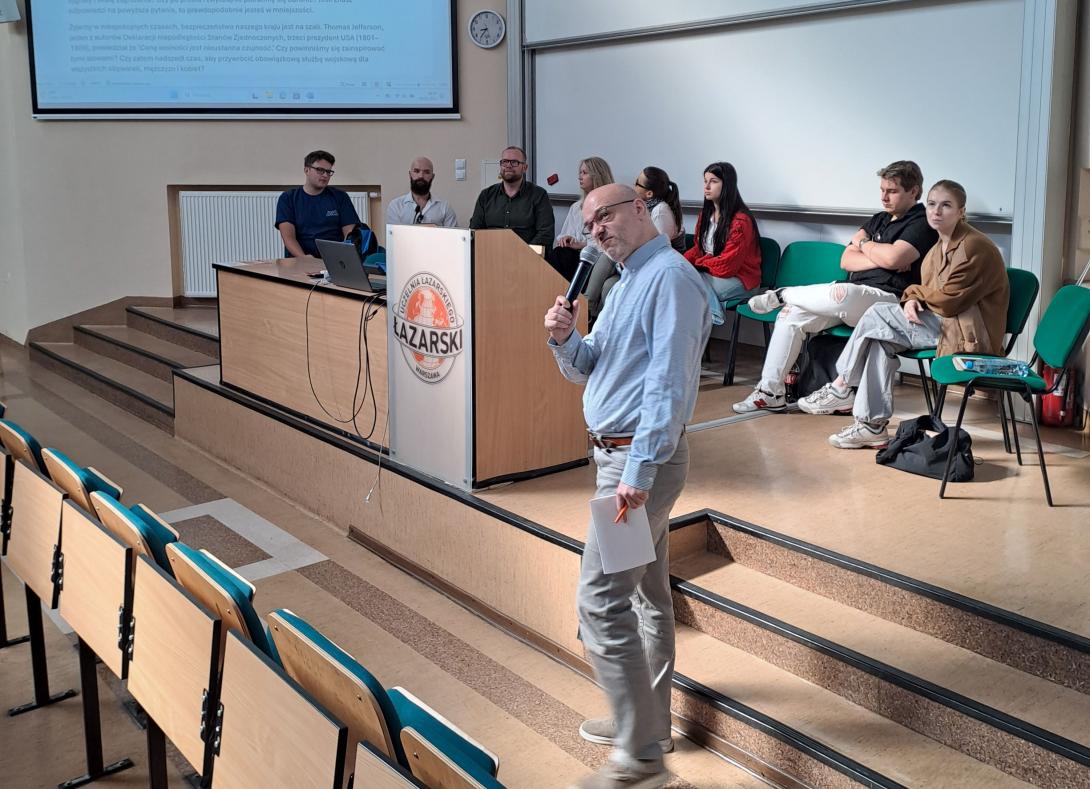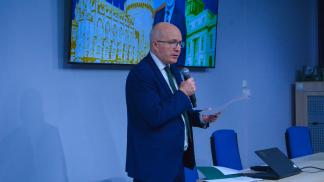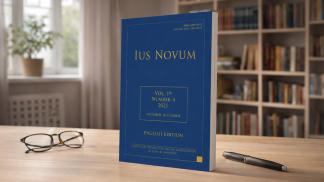Is service in the Polish Army unattractive to young people? (post-debate conclusions)

Despite the relatively modest number of participants (as compared with the debates so far), the discussion was hot! Eight panelists in the debate presented their arguments, and even the audience was vocal, even before the traditional FOR and AGAINST voting.
First, we listened to the opinions of people who actually completed military service: in Sweden and South Korea. They presented arguments about the need for a state of readiness in the face of a real threat from aggressive neighbors (the situation of South and North Korea) and potentially unpredictable and aggressive behaviour of Russia (in Sweden).
We also listened to the arguments of young recruits and officers from France, where military service can take the form of not only military exercises, but also community service, assistance in the event of natural disasters and work for local communities in peacetime. There, regardless of their racial and religious associations, young people are taught French republican values such as social solidarity, a sense of collective responsibility and national pride. However, these arguments were not accepted by the debate participants, who claimed that a real attack by Russia on NATO member countries cannot be stopped by ordinary soldiers, but depends only on politicians. They maintained that even despite intensive training, no young soldier will be able to effectively perform defensive activities, and the real threat is from cyber-attacks and actions of sabotage and provocation, which soldiers of conscript service are not trained to counteract.
The high costs of organizing military service throughout the country were pointed out, and the advisability of allocating huge financial resources for universal military training, which should instead support our country's economic development rather than armaments, was questioned.
However, the biggest problem, irreconcilable with the values of young people, widely demonstrated not only during our debate, but also supported by public opinion polls in many European countries, turned out to be the alleged limitation of freedom of personal choice (Do I want to serve the country or not? Do I want to stay here in case my life is threatened, or do I prefer to escape to a safe place?) and the feeling of being forced to serve an abstract idea of the state, the meaning of which they personally do not see: it contradicts the desire for self-realization, the reluctance to listen to top-down orders and their individualism demonstrated by young people of Generation Z.
Some participants of the debate rejected the option of escaping in case of danger, declaring their willingness to fight for the country in which they live and where they see their future. They maintained that common and mandatory training in civil defense and procedures (even to a minimal extent, not necessarily as soldiers) would be useful in the event of a threat of a military conflict for our country, which cannot be completely ruled out. They pointed out the representatives of selected professions and specializations that are critical from the point of view of effective defense of the country: engineers, doctors, translators, who should be ready to serve the country in the event of war. However, these arguments were not accepted and during the voting an overwhelming number of votes were against restoring compulsory military service in Poland.
The course of the debate and the voting results can be interpreted as an expression of confidence in the professionalism of the Polish armed forces. The opinion was expressed that the security guarantees resulting from participation in the NATO alliance should be sufficient.
To sum up, there is a general reluctance to serve the country and military service in particular. Young people did not hide their critical attitude towards the hierarchical and autocratic style of military institutions (the need to listen to orders, fulfill burdensome duties and lack of discussion) and the need to personally devote time, effort and perhaps even life to defend an idea that was quite abstract for them: a state, defined geographically as a territory on which they were born, but to which they do not feel particularly attached.
Could your presence in the debate change the voting results? Are your beliefs different from those presented by the debate participants and the audience? Well, the absent are always in the wrong, so... until the next debate!
Może Cię zainteresować






